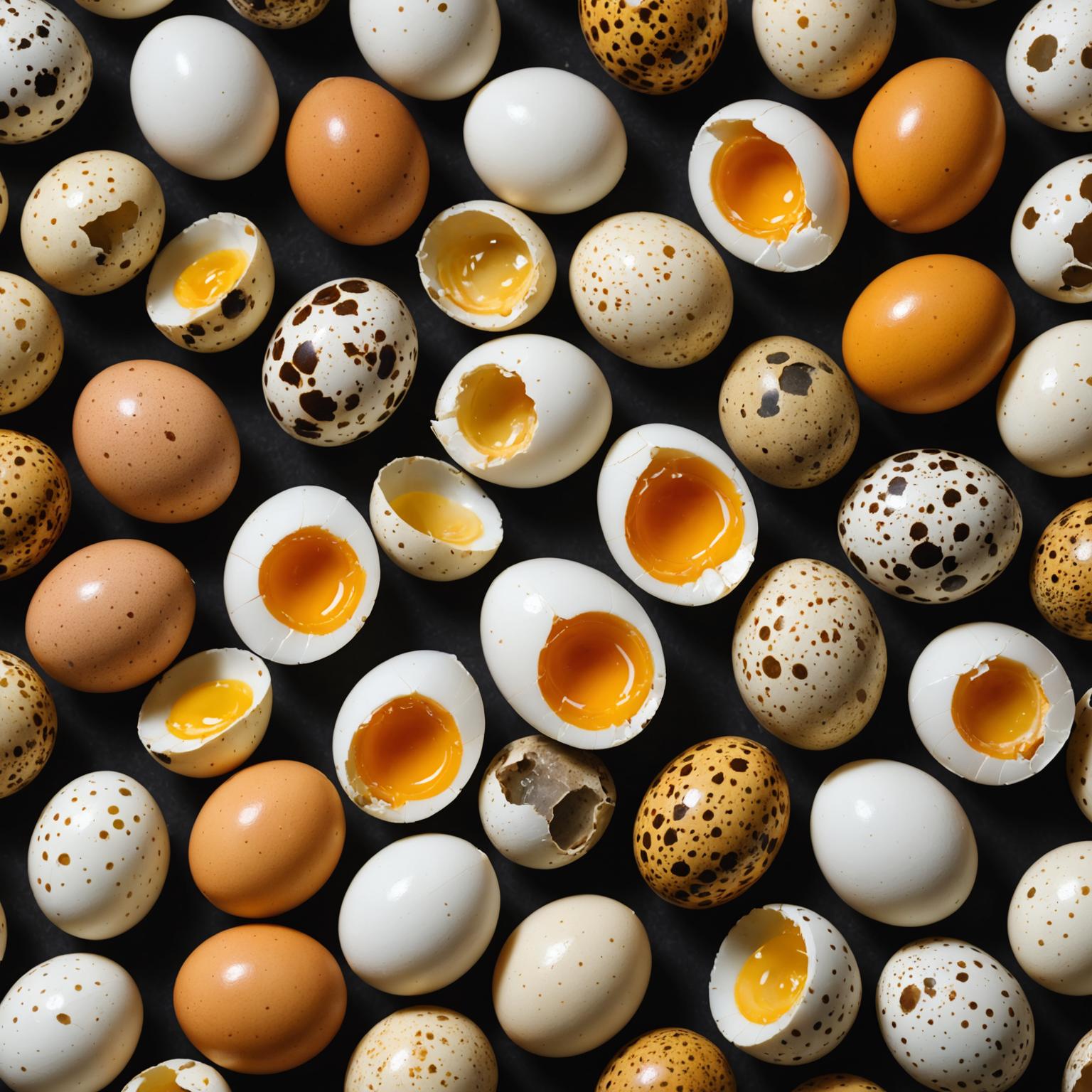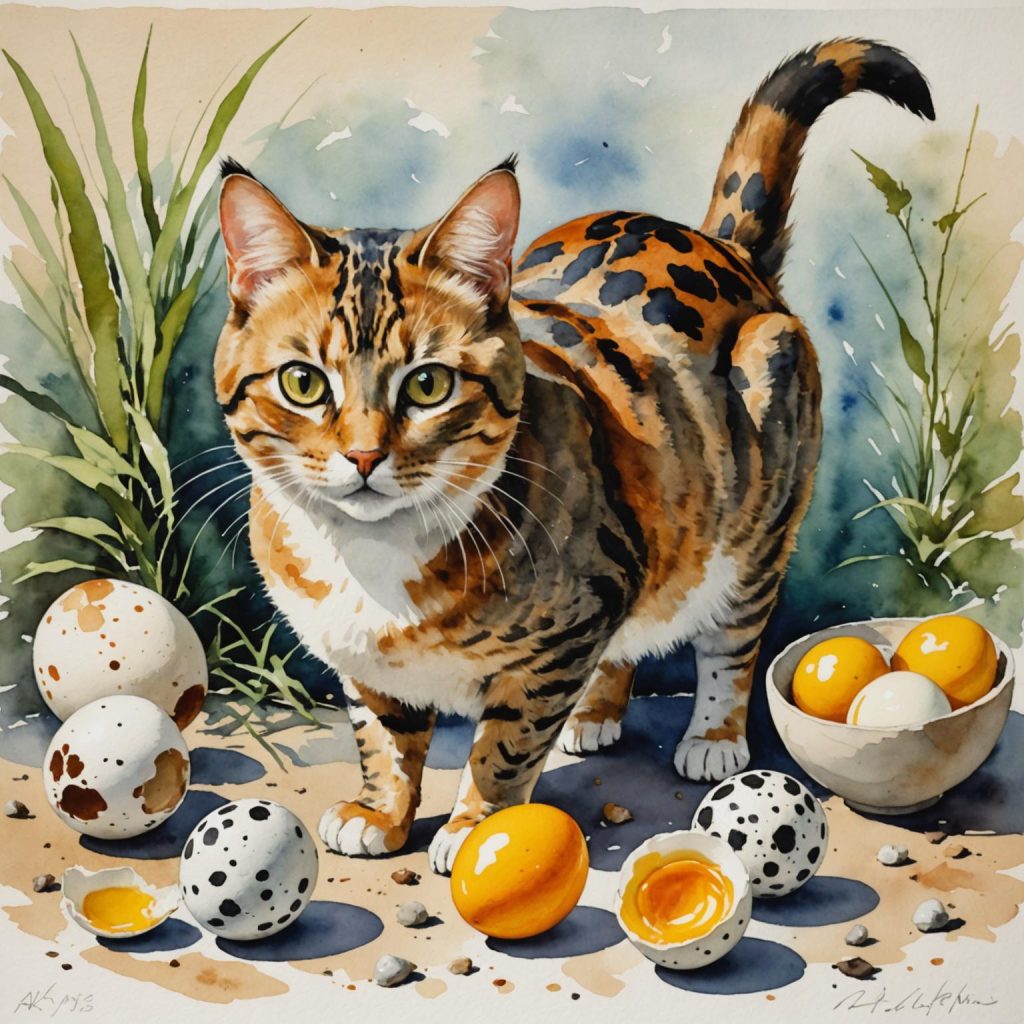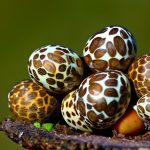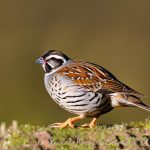Cats are known for their curious nature, always investigating new sights, scents, and tastes that cross their path. With the rising popularity of holistic pet diets, many cat owners are exploring alternative sources of nutrition for their furry friends. One particular question that has arisen is whether cats can safely consume quail egg shells. In this article, we will delve into the topic to determine whether this unique snack is a suitable addition to your feline’s diet.
Table of Contents
introduction: Understanding the Nutritional Value of Quail Egg Shells
Quail egg shells are a rich source of calcium, which is essential for bone health and progress. Just like chicken egg shells, quail egg shells can be ground up and added to pet food for an extra boost of nutrients. This calcium supplement can help support the overall health of your cat, especially if they have specific dietary needs or are prone to certain health issues.
Feeding your cat quail egg shells in moderation can also provide them with additional minerals like magnesium and phosphorus, which are crucial for muscle function and energy production. It’s notable to ensure that the egg shells are finely ground before adding them to your cat’s food to prevent any potential choking hazards. incorporating quail egg shells into your cat’s diet can be a beneficial way to enhance their nutritional intake and promote optimal health.
Benefits of Quail Egg Shells for Cats Health
Quail egg shells can be a great addition to your cat’s diet, providing numerous health benefits for your feline friend. They are packed with essential nutrients such as calcium, magnesium, and phosphorus, which are important for maintaining strong and healthy bones.
Additionally, the high level of calcium in quail egg shells can help support your cat’s dental health by promoting strong teeth and gums. The shells also contain protein and amino acids, which can aid in muscle development and overall growth. Including quail egg shells in your cat’s diet can be a simple and natural way to boost their health and well-being.
Potential Risks of Feeding Quail Egg Shells to Cats
Feeding quail egg shells to cats can pose potential risks that pet owners should be aware of. While quail egg shells are a good source of calcium and other minerals,they can also present some dangers when given to cats. Here are some things to consider:
- Choking Hazard: Quail egg shells can be small and brittle, posing a risk of choking or intestinal blockage if not properly crushed before being fed to cats.
- Sharp Edges: The edges of quail egg shells can be sharp and may cause injuries to a cat’s mouth, throat, or digestive tract if ingested whole or in large pieces.
| Cat Behavior | Risks |
| Gnawing on shells | Choking hazard |
| Swallowing large pieces | Sharp edges can cause injuries |
It is important to consult with a veterinarian before introducing quail egg shells into your cat’s diet. They can provide guidance on safe ways to incorporate calcium-rich foods into your cat’s meals without putting them at risk of harm. Remember, the health and well-being of your feline friend should always come first.
Recommendations for Safely Incorporating Quail Egg Shells into Your Cats Diet
When it comes to incorporating quail egg shells into your cat’s diet, ther are a few key recommendations to keep in mind. First and foremost, it’s important to ensure that the egg shells are thoroughly cleaned and crushed into a fine powder before serving them to your feline friend. This will help prevent any potential choking hazards and make it easier for your cat to digest the shells.
Additionally, it’s crucial to monitor your cat’s reaction to the egg shells and start with a small amount to gauge their tolerance. Quail egg shells are a great source of calcium for cats, but too much too soon can upset their stomach. Lastly, be sure to consult with your veterinarian before making any significant changes to your cat’s diet to ensure that incorporating quail egg shells is safe and appropriate for your furry companion.
Q&A
Q: Can cats eat quail egg shells?
A: Some cats may be able to eat small pieces of quail egg shells without any issues, as the shells are a good source of calcium. However, it is always best to consult with your vet before introducing any new foods to your cat’s diet.
Q: Are there any risks associated with cats eating quail egg shells?
A: If the shells are not crushed thoroughly, there is a possibility of them causing choking or digestive issues in cats. It is important to monitor your cat’s response when introducing new foods to their diet.
Q: How should quail egg shells be prepared for cats?
A: Quail egg shells should be crushed into small pieces to make it easier for cats to consume. It is also recommended to mix the crushed shells with their regular food to prevent any potential problems.Q: Can quail egg shells be a regular part of a cat’s diet?
A: while quail egg shells can provide calcium and other nutrients for cats, it is indeed best to ensure they are given in moderation. Consulting with your vet on the proper amount to feed your cat is always recommended.
In Summary
while cats may have the instinct to hunt and eat birds, it is indeed not recommended to feed them quail egg shells. These shells can be a choking hazard and may not provide any nutritional benefits to your feline friend. It’s always best to stick to a balanced diet that is specifically formulated for your cat’s needs. Remember, when in doubt, consult with your veterinarian for guidance on what is safe and appropriate for your beloved pet. Thank you for reading!
Meet Walter, the feathered-friend fanatic of Florida! Nestled in the sunshine state, Walter struts through life with his feathered companions, clucking his way to happiness. With a coop that’s fancier than a five-star hotel, he’s the Don Juan of the chicken world. When he’s not teaching his hens to do the cha-cha, you’ll find him in a heated debate with his prized rooster, Sir Clucks-a-Lot. Walter’s poultry passion is no yolk; he’s the sunny-side-up guy you never knew you needed in your flock of friends!







